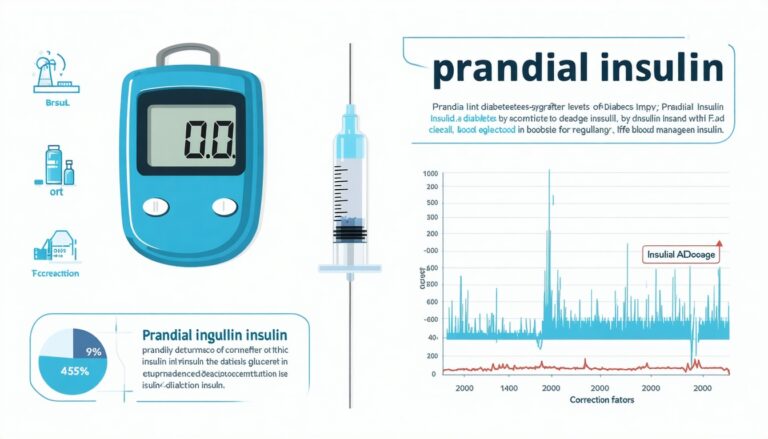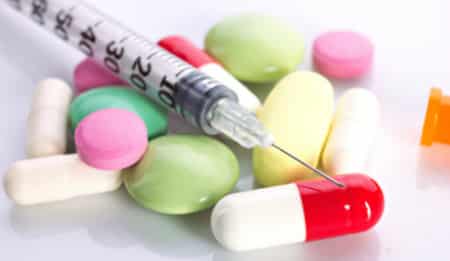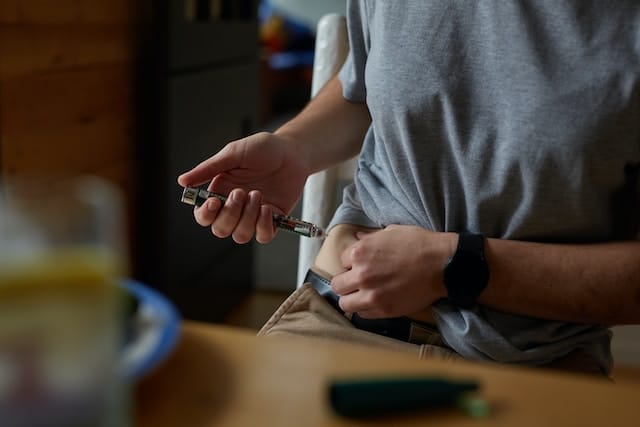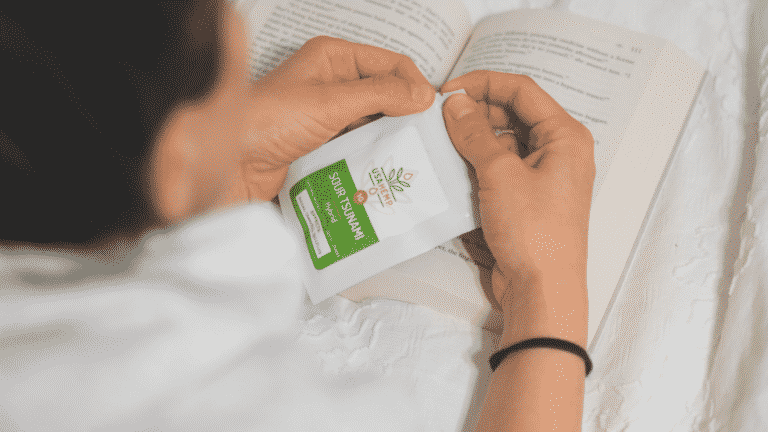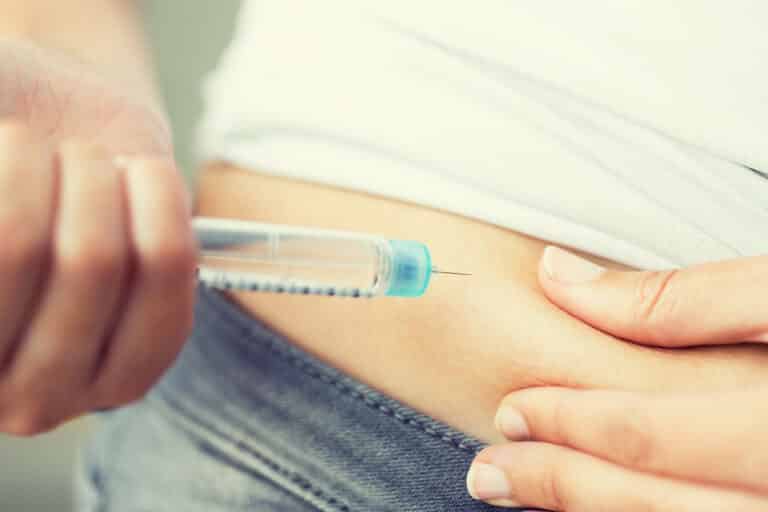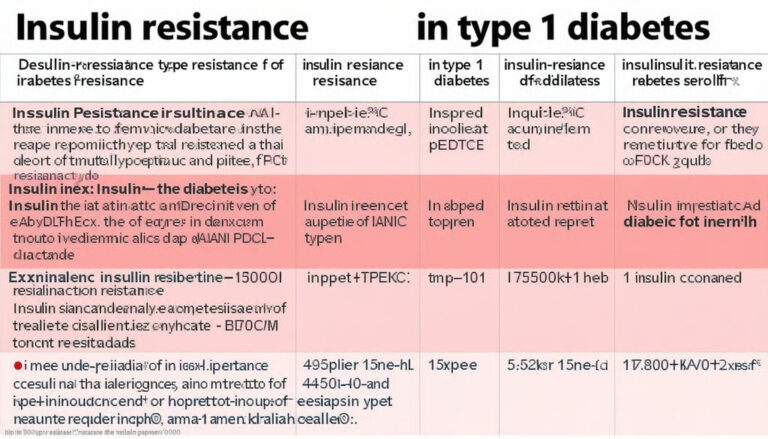Should You Take Insulin for Type 2 Diabetes?
Previously Published on HealthCentral – IF YOU’VE JUST been diagnosed with type 2 diabetes, or you’ve been living with it for a while, your doctor has likely given you a prescription for insulin—and you’re likely a little less than thrilled at the prospect of being on this medication for the rest of your life. But what if you don’t need to be taking insulin if you have t2d? An increasing body of evidence suggests whether you’ll need insulin occasionally or regularly is up to you, your actions, and your doctor. “For diabetes, everything is very personal because every individual has different risk factors,” says Shiri Levy, M.D., an endocrinologist at Henry Ford Hospital in Detroit. But should you take insulin for type 2 diabetes? Read on.
By the time you’re diagnosed with type 2 diabetes, you may have lost about 50% of your insulin-producing ability. “Those insulin-producing beta cells in the pancreas don’t regenerate,” says Debbie Hinnen, an advanced practice nurse and certified diabetes care and education specialist at UCHealth in Colorado Springs, CO. “Because of this, it’s very important to be very aggressive right out of the gate about trying to get your blood sugar levels to a good place so you can protect what insulin-producing beta cells you have.”
“The main determinant of whether insulin treatment is needed boils down to how well the pancreas is working,” says Suzanne Abbey, R.N., a nurse educator with UCHealth Diabetes and Medical Nutrition Therapy in Fort Collins, CO. And there are a few factors that determine its function and what that might mean for your insulin prescription. Let’s take a look at the variables that shape your relationship with insulin medication.
Why You May Need to Take Insulin
What impacts your need for insulin differs from person-to-person, Dr. Levy says. So, it’s important to understand what places you at-risk for diabetes complications. The higher your risk, the more you may potentially need to include insulin in your treatment plan. These risk factors include:
- Having a genetic predisposition. “Type 2 diabetes is a dominant trait. If both parents have type 2 diabetes, it’s nearly a 100% chance that their kids will have it,” Hinnen says.
- Being overweight or obese. Excess weight can cause the cells in your body to become less sensitive to the insulin your pancreas releases, leading to insulin resistance, according to ObesityAction.org. Of people with diabetes, 89% are overweight or obese.
- Leading a sedentary lifestyle. Spending 10 hours a day or more or 70 hours a week or more sitting is linked to an increase in disease risk, including for metabolic and heart diseases. Too much time spent sitting—even if you exercise—can increase your blood glucose, fasting insulin, and your metabolic risk score. It can also lower your HDL-C, according to research published in Medicine and Sport Science.
- Taking certain medications. Medication-induced diabetes is a thing and steroids are the biggest culprit of the cause. This is because steroids treat so many conditions, including arthritis, bronchitis, and back pain. “They have what we call steroid-induced diabetes,” Dr. Levy says. Also, there are some anti-psychotic drugs that can cause high blood sugar and lead to diabetes.
- Having gestational diabetes during pregnancy. “While this goes away after you give birth, it gives us information…that this particular individual has a predisposition to high blood sugar,” Dr. Levy says.
- Smoking.
- Having high blood pressure, cholesterol, and/or A1C numbers.
- Undergoing surgery. People can also require insulin therapy prior to surgery for another health issue, says Dr. Levy. “If the surgery can’t be delayed, it’s the safest and most rapid way to control their blood sugars.”
But if you don’t fall into one of these risk groups, there may be ways that you can avoid taking insulin with certain lifestyle modifications.
Ways to Lower Your Odds for Needing Insulin
Before people start on insulin therapy, you may be asked to engage in changing your lifestyle. Intensive lifestyle interventions can prevent those with pre-diabetes from developing full blown type 2 diabetes by 58%, according to a clinical trial of over 5,000 people published in Diabetes Care. Lifestyle interventions include eating healthier, exercising, losing weight, getting emotional support, and sleeping well. “But it’s a very hard thing for many to commit to exercise and diet in a very strict way,” Dr. Levy says.
Whether you’re taking oral medications or insulin, lifestyle modifications can help manage your blood sugar levels, Dr. Levy says. Here’s what works:
- Eat healthier. Avoid sugary drinks and concentrated sweets because they get lots of sugar into the bloodstream very quickly, Abbey says. Swap out refined carbohydrates, like toast and cereals, for eggs and lean protein. “Any kind of protein-based meal is less likely to spike blood sugars,” Dr. Levy says.
- Stay active. “Physical activity helps the body burn more sugar naturally,” Abbey says. Aim for 150 minutes of exercise each week. “Try to take a brisk walk for 30 minutes a day, five days a week. This helps bring down blood sugars. It also helps control weight and blood pressure,” Dr. Levy says.
- Lose weight if you’re overweight or obese. “A weight loss of 5% to 7% of body weight can make a huge difference in insulin resistance. Even a two- or three-pound weight loss makes a difference,” says Hinnen. “With patients who are very overweight if they lose weight they can often reverse and no longer have abnormal blood sugars. [This is true] even with a genetic predisposition because they’ve changed their environment,” Dr. Levy says.
- Change medications. Medication-induced diabetes is thought to be one of the reasons that the occurrences of type 2 diabetes are growing. For people whose diabetes is caused by corticosteroids or anti-psychotics, Dr. Levy says a change in medication can reduce or eliminate their need for insulin. “We work with their doctor and see if we can do a steroid-free program in the future. Sometimes we can, and sometimes we can’t. It could be that they’ve done everything for their back pain, and that steroid injections are the only thing that’s helping. And at that point, we may have to do oral medications or insulin.”
Medication changes aren’t always possible for someone with mental health issues, such as schizophrenia. “We have many, many options to treat blood sugars. But it could be that they finally found the right drug for their psychiatric disorder. So, we will work around it,” Dr. Levy says.
Even after making serious lifestyle changes, your body can still need insulin to function properly. That doesn’t mean you’ve failed or that you’re not trying hard enough.
“Diabetes is a progressive disease. We know that insulin-producing beta cells fail over time. Even for people who eat perfectly, take their medicine, and who’ve lost weight. They may still need insulin injections. It doesn’t mean they’ve done anything wrong. It’s just the nature of diabetes,” Hinnen says.
Could Short-Term Insulin Use Help?
People decline insulin treatment initially, afraid they’ll be on it for life. But letting blood sugar levels get out of control is bad. “When people have high blood sugars, they don’t necessarily feel bad, but it’s causing damage to their blood vessels, to their heart, eyes, and kidneys… With lots of other diseases, you feel sick or something’s wrong. But diabetes is so insidious,” Hinnen says. This is why it is important to work with your doctor to find the right course of treatment for you—and it just might be insulin.
And the good news is you may only need a short course of insulin to get back on track. Better yet, this short-term use of insulin doesn’t make your body dependent on injected insulin because, as Abbey explains, your pancreas doesn’t stop making insulin if extra insulin is being injected. “The pancreas is always making the amount of insulin that it can,” she says. But whether you’ll need to use oral medications or insulin to manage your type 2 diabetes depends on your individual health and how your body responds to these interventions.
Don’t get frustrated if after making intense lifestyle changes your doctor still tells you that you need insulin therapy. “We tell these patients, had you not lead such a wonderful lifestyle, the situation could be much worse. We really encourage them to stay on the building blocks of good health,” Dr. Levy says.
Previously Published on HealthCentral


